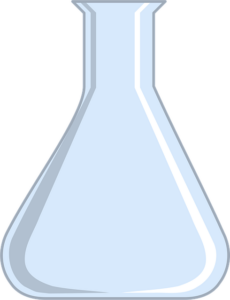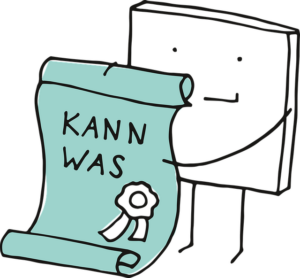Optimizing SDS Translation Services for Full UK Regulatory Compliance
In the UK, accurate translation of Safety Data Sheets (SDS) is vital for regulatory compliance and workplace safety. Professional translation services specializing in SDS and chemical safety are crucial to meet local standards like REACH and HSE guid…….
In the UK, accurate translation of Safety Data Sheets (SDS) is vital for regulatory compliance and workplace safety. Professional translation services specializing in SDS and chemical safety are crucial to meet local standards like REACH and HSE guidelines. These services ensure consistent terminology, cultural adaptation, and precise scientific term translations, aligning with UK regulations. Quality Assurance checks by industry experts verify accuracy while preserving critical safety data. Specialized providers stay updated on EU classifications and UK systems, ensuring compliant SDS adaptations. Best practices include hiring qualified translators, implementing robust QA processes, and using translation memory tools to maintain data integrity. This is essential for businesses expanding into the UK market or dealing with international suppliers, promoting operational efficiency and workplace safety.
In the dynamic landscape of international trade, ensuring compliance with local regulations is paramount, especially in the UK market. This article delves into the critical aspect of translating Safety Data Sheets (SDS), exploring how effective translation services can bridge the gap between global chemical standards and UK regulatory requirements. From understanding intricate legal mandates to navigating technical terminology, we uncover best practices for accurate SDS localization, underscoring its profound impact on business operations and safety protocols.
- Understanding UK Regulatory Requirements for SDS
- The Role of Accurate Translation in Compliance
- Key Considerations for SDS Translation Services
- Ensuring Consistency Across Different Languages
- Handling Technical Terminology in SDS Translation
- Cultural Sensitivity in International Chemical Communication
- Quality Assurance Checks for Translated SDS
- Common Challenges and Solutions in UK SDS Localization
- Best Practices for Maintaining Data Integrity During Translation
- The Impact of Accurate SDS Translation on Business Operations
Understanding UK Regulatory Requirements for SDS
In the UK, Safety Data Sheets (SDS) play a crucial role in ensuring the safe handling and disposal of hazardous chemicals. These documents provide essential information on potential hazards, first aid measures, and storage guidelines to businesses and users. When translating SDS for UK regulators, it’s paramount to have a deep understanding of local regulations and requirements. The UK has its own set of standards and guidelines, which may differ from those in other regions, making professional translation services indispensable.
Translation goes beyond simply converting text from one language to another; it involves adapting content to meet specific legal and cultural expectations. Experienced translators specializing in chemical documentation must be familiar with the REACH (Registration, Evaluation, Authorisation and Restriction of Chemicals) regulations and other relevant UK legislation. They ensure that the translated SDS accurately convey critical safety data while adhering strictly to these requirements, thereby facilitating compliance for international companies doing business in the UK market.
The Role of Accurate Translation in Compliance
The accuracy of translations plays a pivotal role in ensuring compliance with UK regulations for Safety Data Sheets (SDS). When dealing with chemical products, clear and precise communication is essential to safeguard users and the environment. SDS provide critical information about potential hazards, handling procedures, and first aid measures, all of which must be conveyed accurately in English for UK markets. Inaccurate translations can lead to misunderstandings, misuses of products, and non-compliance with legal requirements, posing significant risks.
Therefore, leveraging high-quality translation services specifically tailored for UK SDS is paramount. Professional translators with expertise in the chemical industry ensure that technical terminology is translated correctly, preserving the integrity of safety instructions. Such services not only guarantee compliance but also enhance the overall user experience by providing clear and accessible information for consumers, handlers, and emergency responders alike.
Key Considerations for SDS Translation Services
When translating Safety Data Sheets (SDS) for the UK market, several key considerations come into play to ensure accuracy and compliance with regulatory requirements. The first step is to understand the specific guidelines set by the UK’s Health and Safety Executive (HSE) regarding SDS content and format. These guidelines dictate not only the required information but also the language tone and style. Engaging professional translation services with a deep understanding of both chemical safety and UK market nuances is paramount.
Moreover, maintaining consistency in terminology across all translated SDS is essential to avoid confusion. This involves creating a comprehensive glossery of terms approved by industry experts and HSE standards. Additionally, cultural adaptation is critical; what works in one language may not convey the same meaning or tone in another. Skilled translators should adapt the content while preserving the original intent, ensuring that UK regulators can easily interpret and understand the safety information presented in the SDS.
Ensuring Consistency Across Different Languages
Consistency is key when it comes to communicating critical safety information across different languages, especially in the context of UK Safety Data Sheets (SDS). When translating SDS for UK regulators, professional translation services play a vital role in ensuring that all language versions maintain uniformity and accuracy. This includes not only translating words but also understanding the nuances and regulatory requirements specific to the UK market.
Translation experts specializing in chemical or technical documentation must possess a deep knowledge of both the source and target languages. They should be adept at conveying complex scientific terms while adhering to cultural and linguistic conventions that may differ from one country to another. By employing high-quality translation services, companies can guarantee that their SDS are not only compliant with UK regulations but also easily understandable for all audiences, promoting safety and compliance across the board.
Handling Technical Terminology in SDS Translation
When translating Safety Data Sheets (SDS) for the UK market, handling technical terminology is paramount to ensure compliance and effective communication with regulators. SDS translation services must bridge the gap between complex scientific and chemical terms used globally and their UK-specific equivalents, ensuring the safety information remains accurate and clear.
Professional translators familiar with both the source language and UK regulatory requirements are essential. They employ specialized glossaries and databases to map technical terms, maintaining consistency throughout the document. This meticulous approach guarantees that critical safety data is not only correctly conveyed but also aligns with the expectations of UK regulators, fostering seamless compliance and a robust safety communication framework.
Cultural Sensitivity in International Chemical Communication
When translating Safety Data Sheets (SDS) for a UK audience, cultural sensitivity is paramount. Different countries have distinct safety standards and communication norms, and what’s considered clear in one culture might not be so in another. For instance, symbols used to convey hazard levels must align with UK regulations, as the system here differs from other regions.
Translation services for UK SDS should also account for nuances in language usage and idiomatic expressions. Professional translators who understand both chemical safety terminology and local cultural contexts are key to ensuring accurate and effective communication. They can adapt language to be easily comprehensible by UK regulators while adhering to the stringent requirements of international chemical safety standards.
Quality Assurance Checks for Translated SDS
When it comes to translating Safety Data Sheets (SDS) for the UK market, ensuring accuracy and compliance is paramount. Quality Assurance (QA) checks are an integral part of this process. These rigorous procedures involve multiple layers of review by experts in both the chemical industry and language translation. The aim is to verify not just the linguistic correctness but also the preservation of critical safety information.
Translation services for UK SDS must adhere to strict standards, as even a minor misinterpretation could have severe consequences. QA checks include verifying that all chemical hazards, first aid measures, storage instructions, and disposal guidelines are accurately conveyed in the target language. This meticulous process guarantees that the translated SDS not only meets legal requirements but also effectively communicates essential safety data to UK users, ensuring their well-being.
Common Challenges and Solutions in UK SDS Localization
The process of localizing Safety Data Sheets (SDS) for the UK market presents several challenges, especially when ensuring compliance with stringent regulatory requirements. One of the primary hurdles is the intricate nature of chemical and hazardous material classifications, which vary across European Union (EU) member states. These differences necessitate precise translation services tailored to UK regulations, such as the Control of Hazardous Substances (CHS) system.
To overcome this challenge, specialized translation providers employ expert chemists and toxicologists who are well-versed in both the source and target regulatory frameworks. They meticulously interpret and adapt SDS content, ensuring that essential information like hazard identification, preventive measures, and first aid instructions remain accurate and legally compliant. Additionally, these professionals stay updated on any changes to UK regulations, guaranteeing that translated SDS documents remain current and effective.
Best Practices for Maintaining Data Integrity During Translation
Maintaining data integrity during the translation of UK Safety Data Sheets (SDS) is paramount to ensure regulatory compliance and effective communication. When translating SDS, it’s crucial to employ best practices that preserve the accuracy and reliability of safety information. One key practice is using qualified translators with expertise in both chemical/technical terminology and the UK regulatory landscape. These professionals should be native speakers or have a strong command of the target language to avoid misinterpretations.
Additionally, implementing quality assurance (QA) processes is essential. This includes thorough review and editing by subject matter experts who can verify the translated SDS aligns with original data. Utilizing translation memory tools and ensuring consistency in terminology across all documents also helps maintain integrity. Regular communication between translators, clients, and reviewers is vital to address any discrepancies promptly, guaranteeing that the final translated SDS meets UK regulatory standards.
The Impact of Accurate SDS Translation on Business Operations
Accurate translation of Safety Data Sheets (SDS) is paramount for businesses operating in the UK, as it significantly impacts their regulatory compliance and overall business operations. SDS provide critical information about chemical products’ hazards, precautions, and handling procedures, making their communication across languages indispensable. Poor or inaccurate translations can lead to misunderstandings, miscommunications, and potential safety risks.
For companies dealing with international suppliers or aiming to expand into the UK market, professional translation services for UK SDS are essential. These services ensure that vital information is conveyed clearly and correctly, protecting businesses from legal repercussions and promoting a culture of workplace safety. Effective translations enable employees to understand product risks, implement appropriate safety measures, and respond promptly in case of emergencies, ultimately enhancing operational efficiency and compliance with local regulations.
In conclusion, effective translation services for UK Safety Data Sheets (SDS) are paramount to ensuring compliance with local regulations and facilitating safe chemical handling across borders. By understanding the unique requirements of UK regulators, leveraging accurate translations, and implementing best practices, companies can streamline their operations, maintain data integrity, and foster a culture of safety in international chemical communication.




